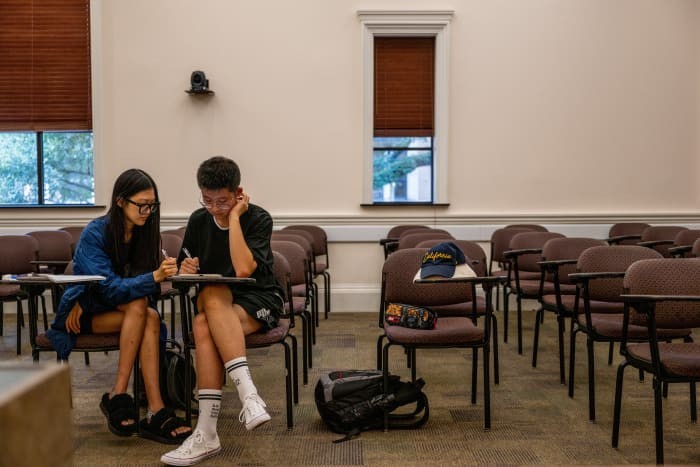
A mounting wave of artificial intelligence (AI) cheating cases is creating turmoil across university campuses, raising serious concerns about academic integrity and fairness in higher education.
Recent data from the Higher Education Policy Institute paints a troubling picture - while most students use AI tools legitimately, approximately 5% are exploiting them to complete assignments dishonestly. The problem has reached alarming levels at prestigious Russell Group universities, where officials report cheating allegations have multiplied by fifteen times.
Universities are fighting back by deploying AI detection software like Turnitin to identify computer-generated content. While these tools have analyzed over 130 million papers and flagged countless suspicious submissions, they're not foolproof. Even with an error rate under 1%, thousands of students could face wrongful accusations.
The detection systems have sparked new controversies around fairness. Research from Stanford University reveals these tools may unfairly target non-native English speakers, placing international students at higher risk of false accusations compared to their native-speaking peers.
As AI becomes more deeply woven into education, universities face mounting pressure to develop clear policies. Some institutions advocate for "AI-positive" approaches that spell out acceptable AI use, while others push to restore traditional teaching methods. However, finding the right balance between embracing technology and preserving academic honesty remains an ongoing challenge.
The crisis highlights a permanent shift in academia - while AI integration cannot be reversed, maintaining fair assessment and trust in educational achievements demands careful oversight and evolving solutions.
This growing epidemic of AI-enabled cheating threatens to undermine the hard work of honest students who earn their grades through genuine effort and learning. As detection tools improve and policies mature, universities must work to protect academic integrity in an increasingly AI-powered world.